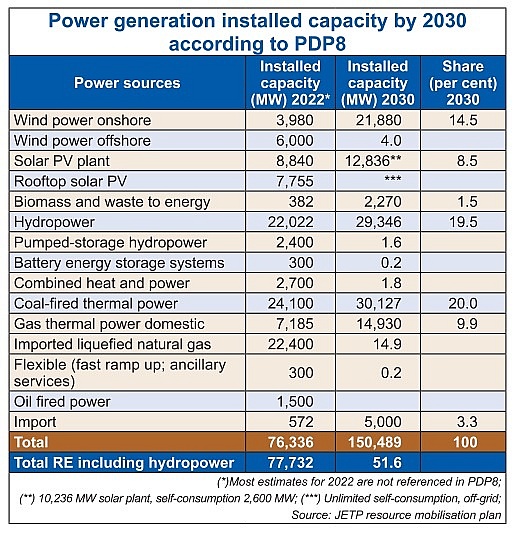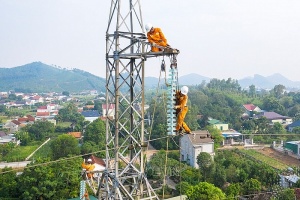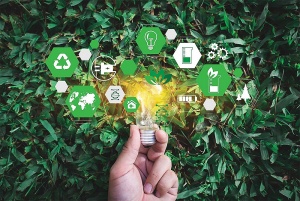Global aid for energy transition ramps up
Washington State’s Office of the Governor last week led a delegation of about 46 leaders from business, government, industry, and education on a five-day trade mission to Vietnam. The delegation was focused on strengthening trade and collaboration opportunities in advanced technology sectors such as agriculture, clean energy, and AI. The US has pledged to support Vietnam in advancing climate, energy, and the environment, among other areas.
“As the Just Energy Transition Partnership (JETP) turns towards implementation, the US is enhancing technical assistance support for Vietnam’s clean energy transition, including through the Vietnam low-emission energy programme,” the embassy said.
“The US Department of State, Vietnam’s Posts and Telecommunications Institute of Technology, and VMO Holdings have launched the Coalition for Climate Entrepreneurship Hub to promote startup activities in the field of climate change. Meanwhile, the US Department of Agriculture’s Foreign Agricultural Service signed an MoU with Vietnam’s Ministry of Agriculture and Rural Development’s Plant Protection Division to make better use of fertiliser to reduce costs, greenhouse gas emissions, and water pollution,” it added.
The US and nine international partners launched the JETP with Vietnam in 2022 that provides investment and technical expertise to help Vietnam transition its energy sector and reach net-zero greenhouse emissions by 2050.
At a meeting in New York on April 6 between Vietnam’s Deputy Prime Minister Le Minh Khai and Amina J. Mohammed, Deputy Secretary-General of the United Nations, the latter said that UN organisations stand ready to support Vietnam in mobilising sufficient resources to accelerate all development goals.
According to Vietnam’s Power Development Plan VIII (PDP8), in order to achieve energy transition, Vietnam would need about $134.7 billion from domestic and international sources by 2030, of which around $120 billion would be for power generation sources and the rest for the power transmission grid expansion and improvement. This would come from both domestic and international public and private sources.
 |
This excludes costs of just aspects and research with relevance to the power sector, whereas the PDP8 estimate includes investments in new fossil fuel power generation, which is inconsistent with the JETP scope. Nevertheless, a significant part of PDP8 projects will match JETP priorities, including renewable power production, energy storage, and many transmission investments.
Exactly which part of PDP8’s projection matches the JETP scope cannot be as ascertained, but it is likely to be several times the total of €15.5 billion ($16.8 billion) committed by members of the International Partners Group and the Glasgow Financial Alliance for Net Zero, whereas they aim to leverage and raise additional funding, depending on the Vietnamese policy environment.
“The plan will help boost Vietnam’s renewable energy production. From a planned 36 per cent of renewables that Vietnam has in its electricity production, the country now aims for 47 per cent in its energy mix,” said European Commission President Ursula von der Leyen. “The plan is tailored to the needs of the local economy and society. It will help develop wind and solar power, grids, or electric vehicles, for example.”
At a Hanoi meeting two weeks ago between Deputy PM Tran Hong Ha and Tanimoto Masayuki, managing director of the Japan Bank of International Cooperation (JBIC), the latter said the JBIC will support Vietnam in green energy development.
Last December, JBIC signed an MoU with VietinBank to support decarbonisation and the energy transition, as well as to support Japanese mid-tier enterprises and smaller businesses entering its market.
A couple of months previously, JBIC also inked loan agreements with Japan’s Erex Co., Ltd for biomass manufacturing and sales business through its two subsidiaries in Vietnam, Erex Sakura Biomass Tuyen Quang and Erex Sakura Biomass Yen Bai, with each amounting to $6 million. The loans are co-financed with Sumitomo Mitsui Banking Corporation.
 | Implementation strategy for new power development plan approved Deputy Prime Minister Tran Hong Ha has approved the implementation updates for the country's Power Development Plan VIII (PDP8). |
 | New PDP8 implementation plan brings investment opportunities On April 1, Deputy Prime Minister Tran Hong Ha approved the implementation updates for Vietnam's Power Development Plan VIII (PDP8), which aims to help build strategic objectives, ensure national energy security, and foster investment across all economic sectors. Senior associate Nguyen Thi Cuc Vi and trainee associate Trinh Linh Chi of Dentons LuatViet explain further. |
 | Investors await instructions for financing power projects Vietnam is pushing ahead with implementation of its national power strategy, but specific incentives still need to be formulated. |
What the stars mean:
★ Poor ★ ★ Promising ★★★ Good ★★★★ Very good ★★★★★ Exceptional
Related Contents
Latest News
More News
- Bac Ai Pumped Storage Hydropower Plant to enter peak construction phase (January 27, 2026 | 08:00)
- ASEAN could scale up sustainable aviation fuel by 2050 (January 24, 2026 | 10:19)
- 64,000 hectares of sea allocated for offshore wind surveys (January 22, 2026 | 20:23)
- EVN secures financing for Quang Trach II LNG power plant (January 17, 2026 | 15:55)
- PC1 teams up with DENZAI on regional wind projects (January 16, 2026 | 21:18)
- Innovation and ESG practices drive green transition in the digital era (January 16, 2026 | 16:51)
- Bac Ai hydropower works stay on track despite holiday period (January 16, 2026 | 16:19)
- Fugro extends MoU with PTSC G&S to support offshore wind growth (January 14, 2026 | 15:59)
- Pacifico Energy starts commercial operations at Sunpro Wind Farm in Mekong Delta (January 12, 2026 | 14:01)
- Honda launches electric two-wheeler, expands charging infrastructure (January 12, 2026 | 14:00)

 Tag:
Tag:




















 Mobile Version
Mobile Version